
Content:
- Economical heating of a private house: without firewood and gas.
- Energy efficiency - why it is important.
- Heat pumps - what you need to know.
- How to heat a private house without gas and firewood. Information from Mycond experts.
- Energy efficient house - heating with a heat pump.
- The most efficient heating of a private house. The opinion of Mycond experts.
- Energy-saving private house - system layout options. The best ideas from Mycond.
- Why your choice is a heat pump.
- How automation helps to save on heating. Tips from Mycond experts.
- Conclusions.
Many private property owners know firsthand about energy efficiency, which is the "gold standard" for a modern home. But what exactly is meant by this concept? First of all, energy efficiency is an opportunity to spend less natural resources and save your finances.
The energy efficiency of a private household is the most important point that needs to be paid maximum attention to. It's no secret that our homes are not completely airtight a priori, because ventilation must work or smoke must escape into the chimney.
Leaks mean that we have to use air conditioners in summer and all kinds of heating equipment in winter. This automatically increases our utility bills - electricity, gas, etc.
Energy efficiency - why it is important
If we make our homes more energy efficient, we will be able to save a lot of money on our expenses. How can we achieve this? You can do high-quality and effective thermal insulation of the entire house or use exclusively energy-saving light bulbs, for example.
Why is it so important? The fact is that the energy efficiency of a building directly affects the level of energy consumption by its residents. In addition, an energy-efficient building helps to preserve the natural habitat of wild animals and protect our planet.
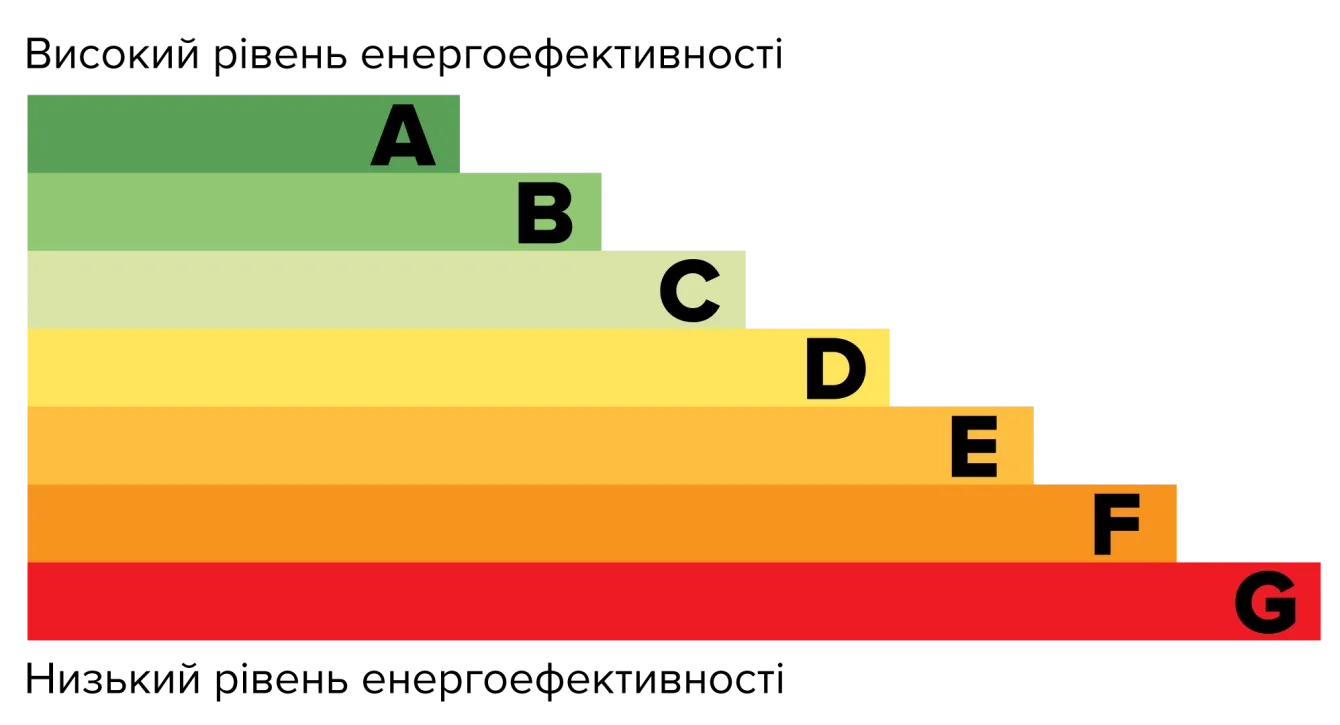
Fig. 1 Energy efficiency of a building
You reduce your dependence on fossil fuels (oil, gas, coal, peat), the combustion of which has a negative impact on the environment. As a result, you pay significantly less on your bills, which is also important.
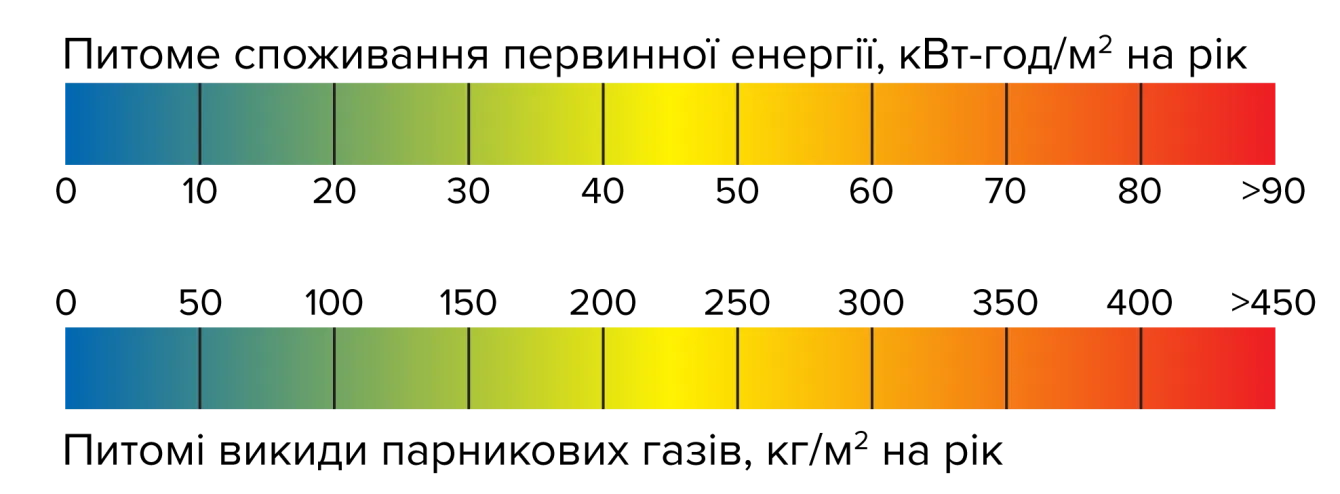
Fig. 2 Greenhouse gas emissions depending on the energy efficiency class of the building
Is it possible to design and implement economical home heating in today's realities?
It should be understood that heating any home is quite important during the cold season and beyond. Usually, we start the heating system at home with the first frost, but many people feel uncomfortable even when the temperature outside the window is slightly above zero.
Why is energy-efficient home heating so important?
The fact is that your heating costs can amount to up to 50% of the average family budget if you choose a system that is not very efficient. That is why energy efficiency comes to the fore when we want to ensure comfort and coziness at home in winter with minimal financial losses.
If you are looking for a system with good energy efficiency for heating a private house, there are always several options available, including, for example
- gas boilers
- electric boilers
- solid fuel boilers;
- inverter split systems with heating function;
- underfloor heating systems, and so on.
All of them are able to guarantee comfortable living and working conditions in your home to a greater or lesser extent, but each system has its own characteristics that must be taken into account when choosing.
If we are talking about such a concept as energy-efficient heating of a private house with minimal costs during daily operation, it is worth considering the option of installing a safe and reliable heat pump in your home.
Heat pumps - what you need to know
A heat pump uses renewable energy resources rather than fossil fuels. Water, ground, and air source heat pumps are considered to be the most energy efficient equipment, and they are environmentally friendly and economical compared to traditional heating and cooling equipment.
Their use can reduce energy consumption by up to 70%.
How does it work? For example, air source heat pumps take heat from the air outside your home, heating the air inside. Of course, certain conditions must be met for normal operation: in particular, the outside temperature must be between -25°C and +48°C (otherwise, heating and cooling efficiency is significantly reduced).
Fig. 3 Operating temperature range of the air source heat pump
Geothermal heat pumps take heat from the earth's interior and other alternative sources (groundwater, lake, river, etc.) and use it to heat the air in your home. Their efficiency is higher than that of air pumps because the temperature of the ground, for example, at a certain depth remains constant throughout the year.
How does a standard domestic heat pump work? Typically, it uses a cooling cycle with mechanical vapor compression. A low-pressure, low-temperature refrigerant circulates in the casing, which recovers heat from the ambient air or the ground when it enters the evaporator.
Why are heat pumps so efficient?
The reason why you should choose an energy-efficient heating system using a heat pump is the low operating costs compared to traditional home heating equipment. As mentioned above, your bills will be reduced by at least half (up to 70% if you choose a high-quality heat pump).
What to choose? A good option would be, for example, a heat pump from Mycond of the BeeSmart series. Its indoor unit is compact and modern in appearance.
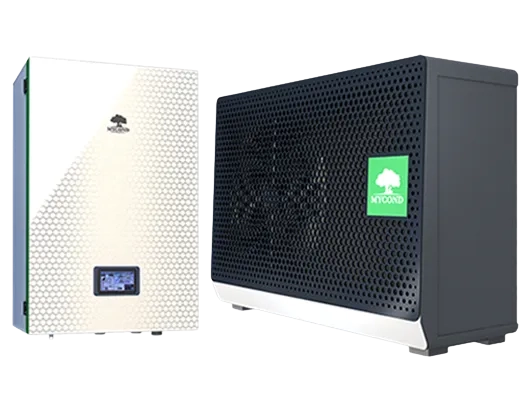
Fig. 4 Mycond BeeSmart heat pump
How to heat a private house without gas and firewood. Information from Mycond experts
An energy-efficient home heating system using a heat pump is an affordable option for many owners of private cottages, available in the following versions:
- ground source heat pump
- water heat pump;
- air source heat pump.
If you are interested in the maximum energy efficiency of a private house in an affordable design, you can choose an air source heat pump. This is a more functional solution when compared to installing and using only a gas boiler in the house, because you can count on many "bonuses" in the form of:
- efficient home heating
- high-quality air conditioning;
- water heating for household purposes.
An air heat pump is a universal all-in-one equipment. You can easily organize energy-efficient heating systems with it, given the existing power limitations of the electrical network, for example.
A modern air heat pump consumes significantly less electricity than traditional electric boilers from well-known manufacturers. This makes it possible to choose and buy a heat pump model that will work efficiently on the available power in almost any specific situation.
Heat pumps, just like electric boilers, operate from the mains. But they are many times more efficient and depend on the conversion factor (COP) of a particular heat pump. COP is the ratio of the heat energy received to the amount of electricity consumed to run the compressor. And while an electric boiler produces as much heat as it consumes electricity, a heat pump consumes 3-6 times less.
For example, to produce 10 kWh of heat, a geothermal installation needs 2-2.5 kWh of electricity - and its COP is 4-5. In air-to-water heat pumps, the average annual coefficient is 3.
A short comparative analysis is enough to expose this myth about the slow payback of a heat pump. For an illustrative example, let's take a modern private house of 150m2 near Kyiv. An electric boiler needs about 20339 kWh of electricity to provide heating during the heating season. The heat pump will consume about 6780 kWh during the heating season. The standard electricity tariff is 2.68 UAH per kWh. And it turns out that the owner of an electric boiler will cost 54.5 thousand UAH for the heating season, and the owners of a heat pump - 18.2 thousand UAH.
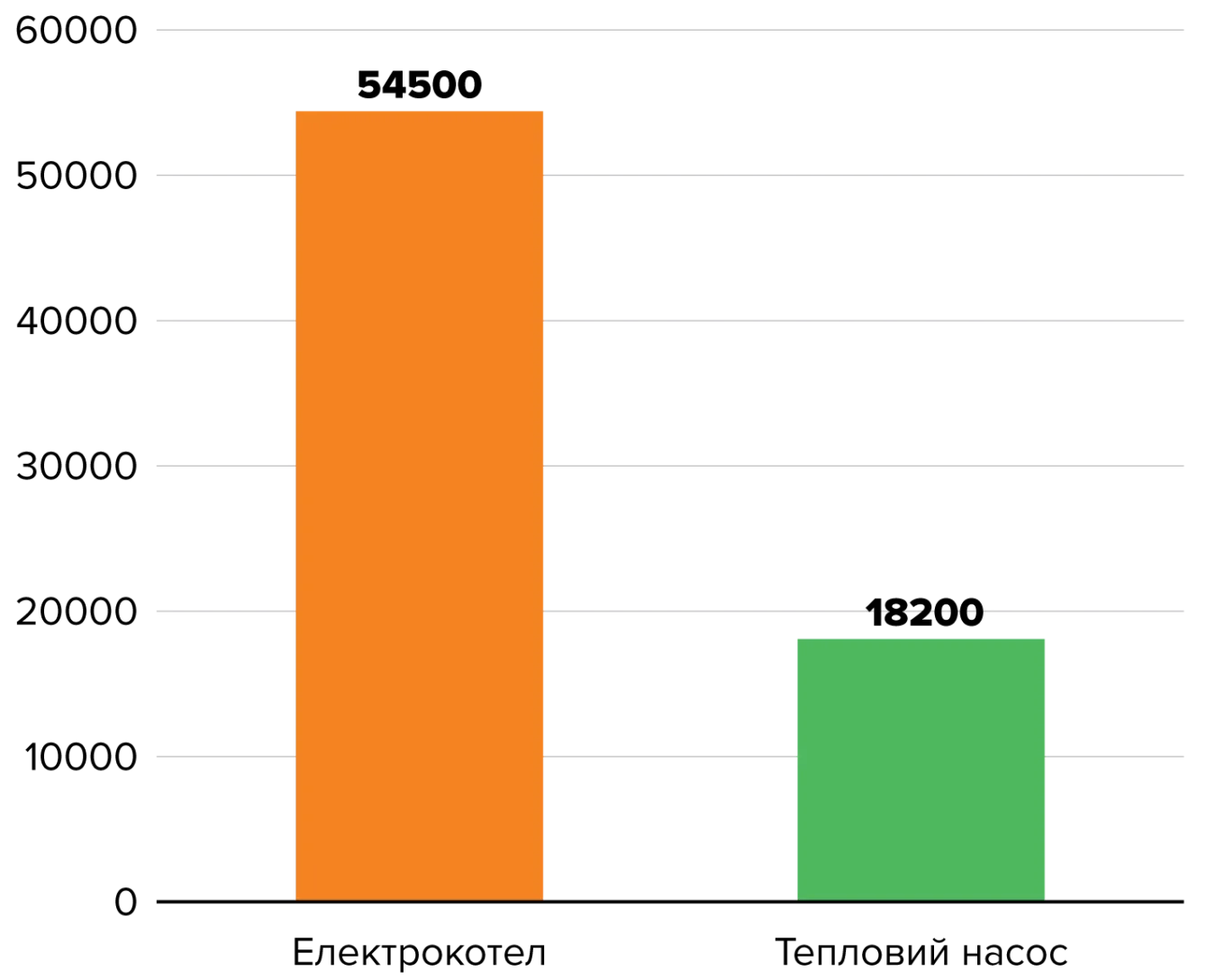
Fig. 5 Operating costs for heating a 150m2 house
And if you also take into account the savings from heating hot water with the possibility of connecting an indirect heating boiler and operating in cooling mode in summer (saving on air conditioners), the payback is even faster.
According to calculations, this model consumes 3-4 times less energy than an electric boiler while producing the same amount of heat. The heat pump in such a system will become the main source of heat in winter and coolness in summer.
As a result, the difference in the cost of an air heat pump compared to an electric boiler will pay off within 4-6 years. A geothermal pump, which scares off many people with the additional costs of arranging an external ground loop, pays for itself in the 10-12th year of operation.
Energy efficient house - heating with a heat pump
How are such efficient heating systems for a private house installed and how do they function? Everything is quite simple: the heat pump is mounted on the wall instead of or next to an existing gas boiler.
The indoor unit of the air source heat pump itself is compact in size, so there should be no problems with installation. The indoor unit is then connected to the existing heating system in the house.
The outdoor unit of the heat pump is usually mounted on the other side of the wall outside the house. After connecting to the power supply, the heat pump begins to heat the water to a comfortable 55-65 degrees Celsius. This is quite enough for normal operation for radiators and water floor heating systems.
Please note: the heat pump automation is capable of separately controlling both the radiator heating circuit and the water floor heating system. Experts recommend replacing old radiators with more efficient panel-type fan coil units, which can be used to heat your rooms in zones in winter and cool them in summer.
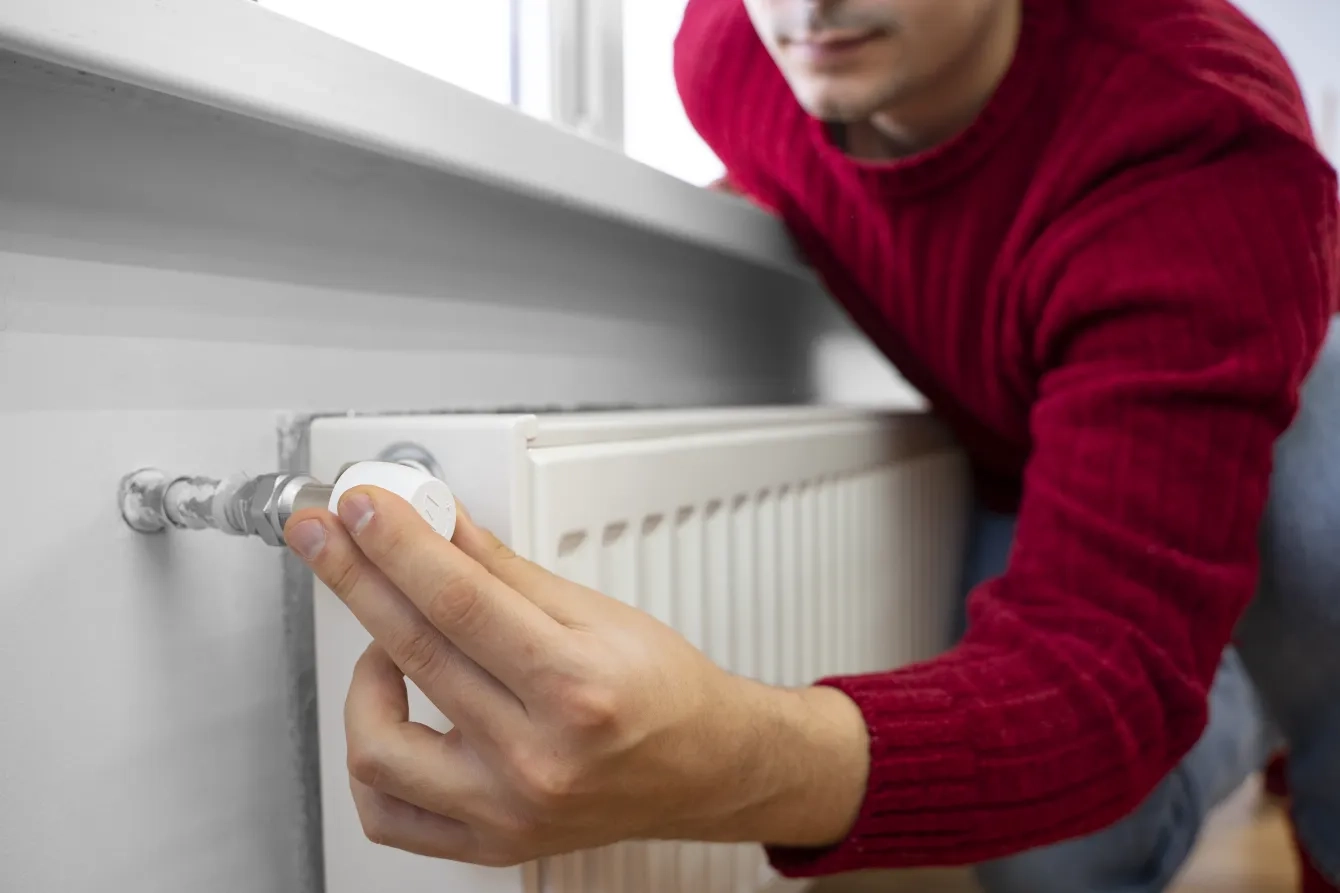

+45..+55℃ +28..+40℃
The price of the question. Answer from the manager of Mycond Limited
How much does such efficient heating of a private house cost? In fact, the price of an air source heat pump set, including an outdoor and indoor unit, is approximately 4 thousand euros (depending on the capacity).
The most efficient heating for a private house. Opinion of Mycond experts
Today, equipment such as air source heat pumps is considered to be one of the most energy efficient among all its competitors. The heat pump uses free alternative sources of renewable heat outside the house. The cost of heating is significantly lower than when using, for example, electricity, gas or firewood.
At the same time, you completely switch to heating from electricity and have minimal utility bills. You can leave the gas boiler in the heating system as a "backup" option. In this case, you can always run it as a backup heat source in particularly cold winters.
Energy-saving private house - system layout options. The best ideas from Mycond
If you are building a new house for the whole family with high energy efficiency, it is worth considering possible layouts of the heating system with additional backup (spare) sources. In particular, you can implement such effective solutions as:
- a heat pump in combination with a backup solid fuel boiler;
- heat pump in conjunction with a backup electric boiler;
- heat pump plus modern photovoltaic installation on the roof, etc.
If you do not plan to use gas for heating your home, an alternative option is to install a ground or water heat pump. Such equipment is characterized by high performance, but the disadvantage for many may be the rather high cost, which is several times higher than that of an air heat pump.
What kind of heating is better to do in a private house. Tips from Mycond experts
We have already found out that energy-saving home heating is possible if you choose the right system. But what are the advantages and disadvantages of energy-efficient options for providing heat? Let's start with solid fuel boilers, for example.
Their undoubted advantages include "omnivorousness" - you can burn almost anything that can burn in the furnace to get heat. These can be:
- fuel briquettes
- fuel wood pellets;
- coal and charcoal;
- dry firewood;
- pressed peat;
- all kinds of woodworking waste;
- cardboard and paper;
- straw bales;
- sunflower seed husks, etc.
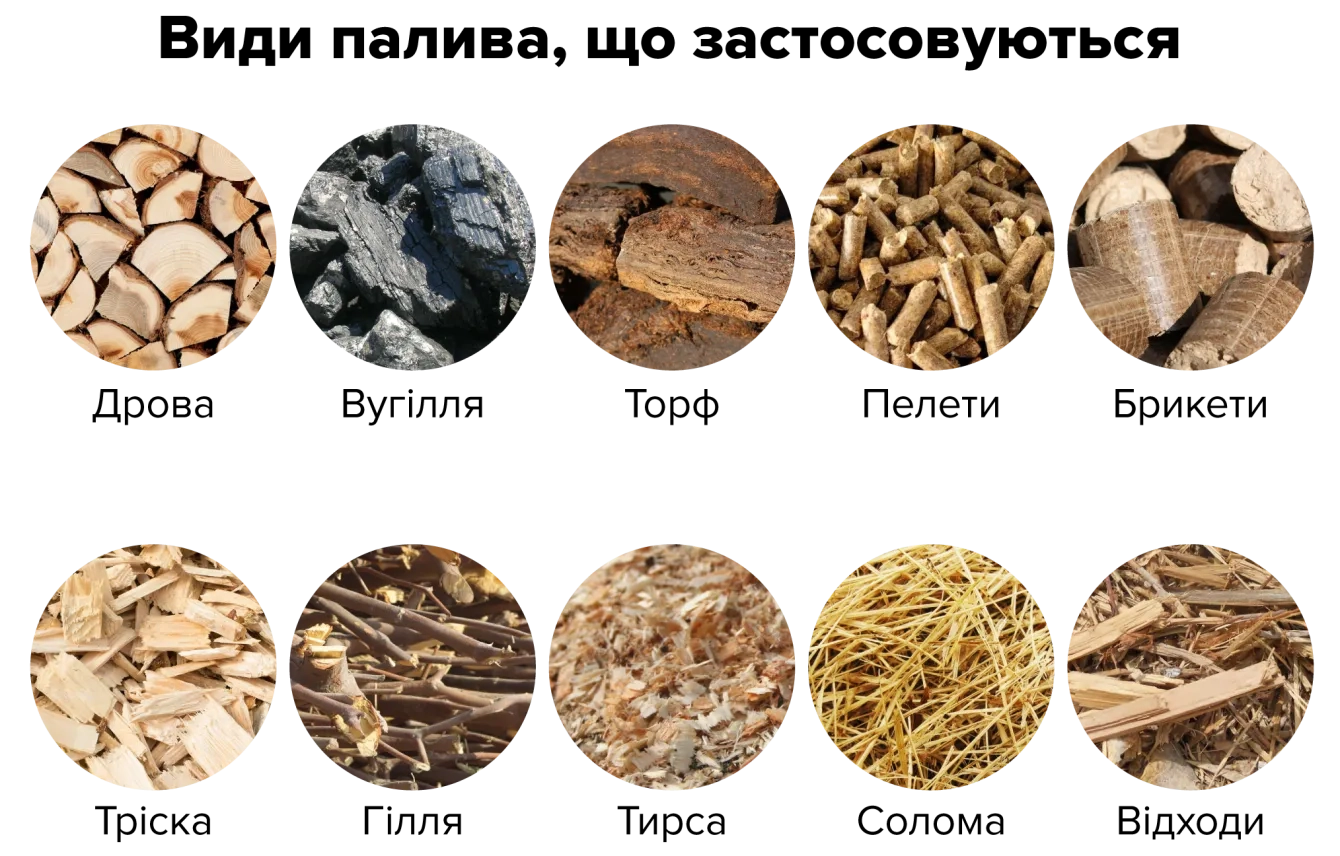
Fig. 6 Types of solid fuel for solid fuel boilers
Among the disadvantages: almost all fuel, with rare exceptions, burns very quickly, after which you need to fill the furnace with new content again. If there is fuel in the house, you will be comfortable and warm, but you will have to make every effort to create heat.
You need to buy fuel, find a place for it to be stored in dryness. A solid fuel boiler needs care and maintenance, from cleaning the firebox to blowing the chimney. Many models are not adapted for heating hot water in summer, so you will have to use an additional flow or storage boiler.
The cost of solid fuel equipment is within the widest range, but you should definitely add the cost of buying and installing a high-quality chimney, organizing additional space for installation, buying fuel, etc. As a result, the price tag can increase by 2.5-3 times.
If your house needs to be connected to a main gas pipeline, the costs of the system will increase even more. It is necessary to develop and approve a project, obtain a permit, buy and install a gas meter, and perform many other actions. As a result, the initial investment for a gas heating system can be even higher than in the case of a solid fuel boiler.
Perhaps your option is an energy-efficient private house with an electric heating boiler? Today, electric boilers are considered the cheapest in terms of initial investment. The advantages also include compact size and no need for a chimney.
Among the disadvantages, there is only one thing worth noting: about one kilowatt of boiler power is required to heat 10 square meters of area. For a private house of 140 square meters, you will need a boiler with a capacity of about 15 kilowatts, which is connected to a three-phase 380 volt network.
As a result, you will need to obtain permission to implement an electric heating system in the house, then spend money on buying an expensive switchboard and agree on the allocation of the necessary power from the nearest substation.
Even if you install a special day-night meter, the total cost of paying for heating with electricity can be prohibitive.
Energy-saving home heating systems based on gas boilers are considered more functional in this regard. With the help of such equipment, you can not only heat the house, but also heat water at any time of the year.
There is one significant disadvantage, however, - rising natural gas prices, which simply cannot be controlled and predicted. In addition to heating and water heating, you will also use gas for cooking on the stove, which should also be taken into account.
This seemingly hopeless situation can be saved by modern heat pumps that use only alternative sources of renewable energy. The use of state-of-the-art energy-saving technologies in this equipment makes it possible to guarantee the efficiency and comfort of obtaining heat in the house, in particular. At the same time, the homeowner will only have to pay for every 3, 4 or 5 kilowatts of heat that was obtained from the ground, water or air.
Why you should choose a heat pump
In recent years, heat pump heating has become a popular alternative to traditional heating systems. This type of heating involves extracting heat from the air, water or ground outside the building and transferring it inside to provide heat.
One of the biggest advantages of heating with a heat pump is its energy efficiency. It requires less energy to produce the same amount of heat than other heating systems, including electric heating. This makes it a more environmentally friendly option and can also lead to lower heating costs for homeowners.
They are also easy to maintain and have a long lifespan, making them a good investment in the long run. In addition, heat pumps can be used in a wide variety of locations, including private homes, farms, and commercial buildings.
When considering the cost-effectiveness of a heating option, the initial installation costs must be taken into account. Heat pumps have a higher installation cost than other heating options such as gas boilers or solid fuel installations.
However, heat pumps provide a more efficient and environmentally friendly heating solution, making them a better long-term investment. In addition, some governments offer incentives or tax breaks for installing heat pumps that can offset the initial installation costs.
Long-term energy costs are another important factor when comparing the cost-effectiveness of heating options. Heat pumps have lower electricity costs compared to other heating options such as electric heating or gas boilers.
This is because heat pumps use renewable energy sources, such as air or ground heat, to generate heat, resulting in lower energy consumption and lower electricity bills.
On the other hand, gas boilers and electric heating require non-renewable energy sources to create heat, which can be more expensive and less efficient in the long run.
Overall, while the initial installation costs of heat pumps are higher, their long-term electricity costs are lower than those of other heating options.
How automation helps to save on heating. Tips from Mycond experts
When designing and implementing modern heating systems, many companies pay very little attention to automation and the introduction of modern control devices that should monitor the temperature in different rooms and premises.
There can be many reasons for this, ranging from the contractor's banal reluctance to over-complicate the heating installation to a banal lack of knowledge of all the benefits of such a solution. The customer may not even realize that properly selected automation significantly saves their heating costs. Most heat pumps have built-in automation, which greatly simplifies system management and allows you to save even more thanks to additional functions and settings. For example:
- equipment control via a mobile application;
- the ability to build an hourly schedule of equipment operation and maintain the required room temperature depending on our presence or time of day;
- weather-dependent heating control.
As the practice and experience of dev.mycond employees shows, sooner or later, the consumer will want to optimize their costs and expenses, for which they will need to modernize their existing heating system, for example. Optimizing heat generation is extremely important, because you will need fewer resources to heat the same area.
One possible solution is the automation of heating systems - the use of sensors, thermostats and other monitoring and control elements to maintain the required temperature in each specific room.

Fig. 7 Thermostats and thermostats for heating systems
What do we mean when we talk about heating system automation?
First of all, we are talking about the use of thermostats, the installation of which allows you to control the temperature of any of the rooms in your home.
The regulation is performed in a simple way: the available data (floor temperature, indoor temperature, etc.) is monitored, and then a command is given to turn the heating system in that room on or off.
Thermostats for heating systems can be mechanical or electronic. Mechanical ones are distinguished by their affordable cost, but lower accuracy of maintaining the set temperature. Digital thermostats maintain the temperature with an accuracy of 0.1C and can be programmed for several scenarios both during one day and for all days of the week.
How does this work in practice? If you are at work all day and no one is home, the automation can turn on the heating an hour before you wake up and heat the room to a comfortable temperature of 22-23 Celsius. After you leave, the thermostat lowers the room temperature by a few degrees, and then raises it again in the evening before you get home from work. At night, the temperature is lowered for a comfortable sleep, and in the morning, everything is repeated again.
As a result, automation allows you to significantly save heating resources, and therefore your expenses at the end of the month. Practice shows that programmable electronic thermostats implemented in the heating system can reduce your heating costs by a third, which will be very useful for many people.
What heating systems can thermostats be used in? Almost any, including:
- water and electric underfloor heating;
- water and electric radiators;
- convectors
- all kinds of heaters;
- heat pumps;
- boilers (gas, electric, pellet, etc.).
Mycond experts recommend that you think about implementing automatic heat temperature control systems at the early stages of construction - this will allow you to hide all the wires and junction boxes. However, today there are also modern wireless solutions that allow you to integrate thermostats into the existing system without serious time spent on repairs.
How to heat a private house without gas and firewood? Is it possible to refuse to use electric heating boilers? Of course, there are quite a few options, and you have to decide which one to choose for your particular case and existing household.
Each private house and each case is individual, so it is important to take into account many characteristics and parameters when choosing an energy-efficient and durable system.
The characteristics of the house, the degree and quality of its insulation are important.
It is necessary to take into account possible heat losses, determine the amount of heat required, hot water needs, etc. we recommend choosing the most energy-efficient solutions - air source heat pumps, which will minimize your costs and expenses in the long run.
Conclusions:
How to heat a private house without gas and firewood? Is it possible to refuse to use electric heating boilers?
Of course, there are quite a few options, and you have to decide which one to choose for your particular case and existing household.
Each private house and each case is individual, so it is important to take into account many characteristics and parameters when choosing an energy-efficient and durable system. The characteristics of the house, the degree and quality of its insulation are important.
It is necessary to take into account possible heat losses, determine the amount of heat required, hot water needs, etc. we recommend choosing the most energy-efficient solutions - air source heat pumps - that will minimize your costs and expenses in the long run.
Recommended articles: https: